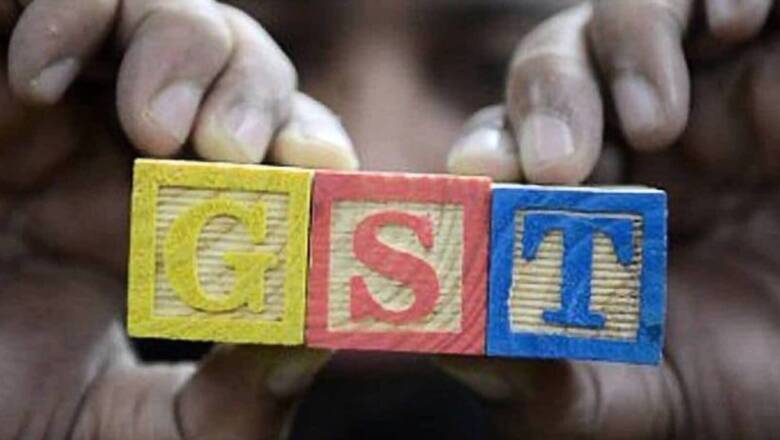
views
One of the big outcomes of the GST council meeting that took place on September 17 in Lucknow was the businesses defaulting on filing monthly GST or summary return will not be able to file GSTR-1 sales return of the succeeding month from January 1 next year. Amongst the big decisions that were taken in the GST council meeting included streamlined compliance, including mandatory Aadhaar authentication for businesses to file refund claims. This was done with intention to avoid revenue leakage due to evasion of Goods and Services Tax (GST), which was launched in July. In addition to this, the Council on September 17, decided to amend Rule 59(6) of the Central GST Rules with effect from January 1, 2022, to provide that a registered person shall not be allowed to furnish Form GSTR-1, if he has not furnished the return in Form GSTR-3B for the preceding month. Currently as per the law, the law restricts filing of return for outward supplies or GSTR-1 in case of a business fails to file GSTR-3B of preceding two month.
Rule 36(4) of CGST Rules, 2017 to be amended, once the proposed clause (aa) of section 16(2) of CGST Act, 2017 is notified, to restrict availment of ITC in respect of invoices/ debit notes, to the extent the details of such invoices/ debit notes are furnished by the supplier in FORM GSTR-1/ IFF and are communicated to the registered person in FORM GSTR-2B, the press release said. The GST Council has also made Aadhaar authentication of GST registration compulsory for being eligible for filing refund claims and application for revocation or cancellation of registration. The Central Board of Indirect Taxes and Customs (CBIC) had notified Aadhaar authentication for GST registration with effect from August 21, 2020. While businesses file GSTR-1 of a particular month by the 11th day of the subsequent month, GSTR-3B, through which businesses pay taxes, is filed in a staggered manner between 20th-24th day of the succeeding month.
In case of not furnishing Aadhaar card number, then GST registration would be granted only after physical verification of the place of business, the notification released said. Making GST registration linkage with biometric Aadhar compulsory for claiming tax refunds as also applying for revocation of cancellation of registration. Also going ahead of all and in a bid to bring transparency the council decided that GST refunds will be disbursed in the bank account, which is linked with the same PAN on which registration has been obtained under GST.
The most talked about proposal of bringing Petrol/ diesel under GST was left untouched by the GST Council. Meanwhile, the council extended the GST relief on four drugs related to Covid-19 treatment till December 31, as well as announcing tax cuts for more life-saving drugs. The council convened its first physical meeting in 20 months – the last one was held on December 18, 2019 – with a packed agenda. Finance Minister Nirmala Sitharaman chaired the meeting. Along with this, the tax structure on the food delivery industry was changed, now food aggregators will collect GST from customers and pay it to the government. This has been done to plug leakages in GST collection from restaurants. In the council, two GoMs formed to look at rate rationalisation related issues as the GST and another to look at e-way bills, FASTags, etc. The biggest of all, the GST compensation cess was not extended and will continue till March 26, 2020.
Read all the Latest News , Breaking News and Ukraine-Russia War Live Updates here.




















Comments
0 comment